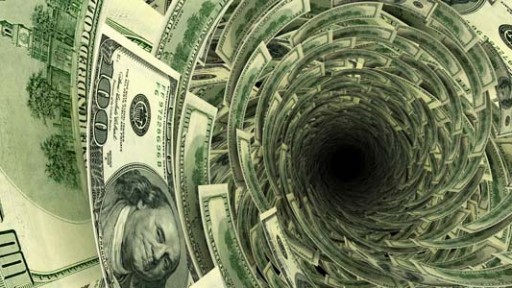- Home
- >
- Daily Accents
- >
- “Currency dependence creates chaos”

"Currency dependence creates chaos"

In the rise and fall of world powers, the currency market keeps score. A nation’s money gains value when it’s a magnet for global investors; in times of trouble it weakens. The volatility can create havoc. To keep things in check, more than half of all countries have fixed the value of their money to another currency — mostly the U.S. dollar or the euro. They’ve hammered in a peg. The tie-ups can provide stability and foster trade, as Hong Kong’s link to the dollar has since 1983. Until they don’t. To hold most pegs in place, central banks must deploy foreign reserves, buying and selling in currency markets in a battle with traders to keep exchange rates stable. If pressure builds, they’ll be forced to give up. The peg will slip or break — with sometimes disastrous consequences.
Some currencies linked to the dollar came under attack in early 2016 fromtraders speculating that it’s becoming too expensive to continue defending them. The slowdown in China’s economy put pressure on Hong Kong’s peg, while Saudi Arabia cracked down on bets against the riyal after the collapse in oil prices. Currency markets have been roiled since August, when China cut the value of the yuan for the first time in two decades; the country burned through more than $500 billion of its reserves in 2015. Both Egypt and Nigeria also effectively devalued last year, as did Argentina. Switzerland shocked traders by scrapping the franc’s three-year-old cap against the euro in early 2015.
There are various systems for managing exchange rates, and some are more stable than others. Panama and Zimbabwe simply use the U.S. dollar as legal tender. Fixed rates are employed in countries from Bulgaria to Saudi Arabia to Venezuela. Singapore and China have employed different types of links to currencies of trading partners via bands that can move up or down.
Currency pegs put a central bank at the mercy of another country’s monetary and fiscal policy, so it must generally copy moves on interest rates. There’s less freedom to respond to domestic goals, such as reviving growth, creating jobs or containing prices. In Hong Kong, for example, easy-money policies in the U.S. caused a surge in inflation and home prices.
Varchev Finance
 Varchev Traders
Varchev Traders If you think, we can improve that section,
please comment. Your oppinion is imortant for us.






